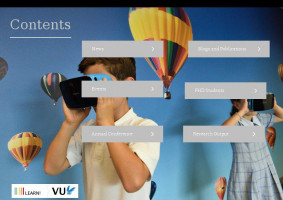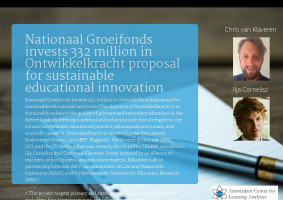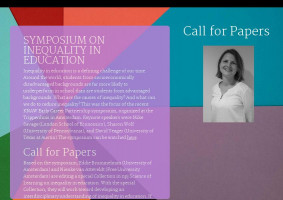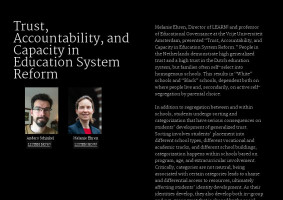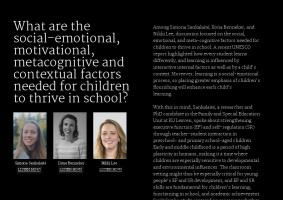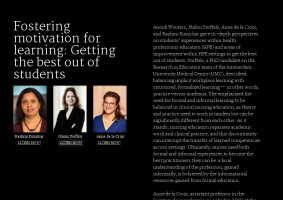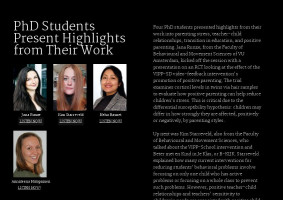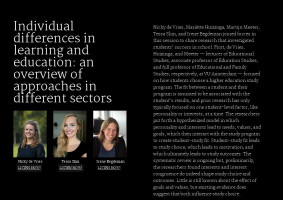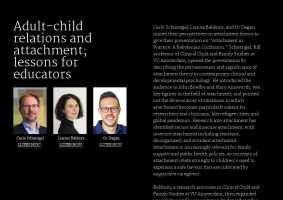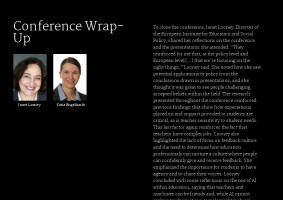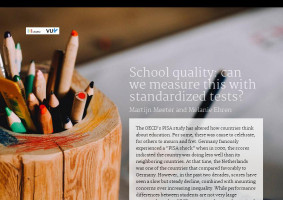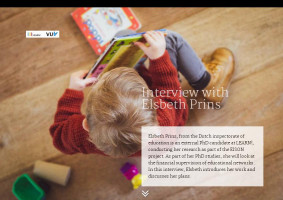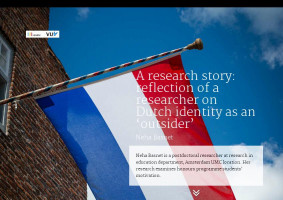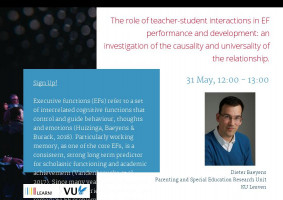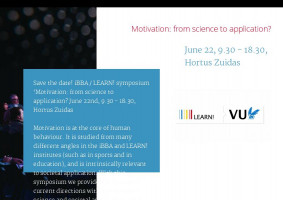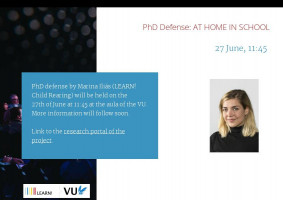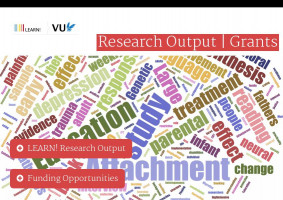_w400_h102_1.png)
Nationaal Groeifonds invests 332 million in Ontwikkelkracht proposal for sustainable educational innovation
Nationaal Groeifonds invests 332 million in Ontwikkelkrachtproposal for sustainable educational innovationThe objective of Ontwikkelkracht is to sustainably enhance the quality of primary and secondary education in the Netherlands by offering a method and infrastructure that strengthens the connection between educational practice, educational innovation, and scientific research. Ontwikkelkracht is inspired by the Educational Endowment Foundation (EEF, England), the Poverty Action Lab (JPAL, US), and the 5D Method that was recently developed by LEARN! researchers Ilja Cornelisz and Chris van Klaveren. It was initiated by an alliance of teachers, school leaders, and education experts, Education Lab (a partnership between the Vrije Universiteit (ACLA) and Maastricht University (ROA)), and the Netherlands Initiative for Education Research (NRO).
1. The project targets primary and secondary schools in the Netherlands and offers four trajectories with the following objectives:
2. Setting up or improving the research and innovation culture within schools,
3. Helping schools make better use of what we already know from educational research,
4. Solving major educational problems in a co-creation lab
5. Becoming a Research & Development School (R&D School).
The activities in which LEARN! is involved are within the third trajectory: the co-creation Labs. In each co-creation lab, scientists, teachers, school leaders, and psychologists work together on an equal basis to create knowledge to improve education in the Netherlands. The two labs developed and implemented by the Education Lab will focus on resolving teacher shortages (Teacher Lab) and language deficiencies of children in primary and secondary school (Language Lab). The co-creation labs use the 5D method as a fundament for doing research. The 5D model is a comprehensive approach to evidence-based education, which incorporates causal evaluations of education policies and practice as part of an iterative procedure of 'Detect, Diagnose, Design, Determine and Decide.' Like other evidence-based approaches, the model acknowledges the importance of causal evaluations in determining the intervention's effectiveness. Yet, within the 5D model, causal evaluations are placed in a broader framework and are considered equally important as the other distinguished phases. As the reaction of Professor Hanushek (Stanford University and winner of the world's highest education accolade, the Yidan Prize 2021) nicely explains, "It is an unfortunate fact that much of historical education policy rests more on anecdotes, fads, and political whims than on thoughtfully developed evidence. The 5D model provides a structure for ensuring that policy is more directly related to rigorous evidence directed at the right problem."
Ontwikkelkracht provides a significant impulse for evidence-informed education in the Netherlands. It offers unique opportunities for research activities with scientific and social impact. The project will start in September 2022 and each Lab is subsidized for five years. Do you want to know more aboutOntwikkelkracht or the co-creative Labs? Please contact: Ilja Cornelisz or Chris van Klaveren.
(1)(1)_w220_h260_1.jpg)
_w220_h260_1.jpg)

